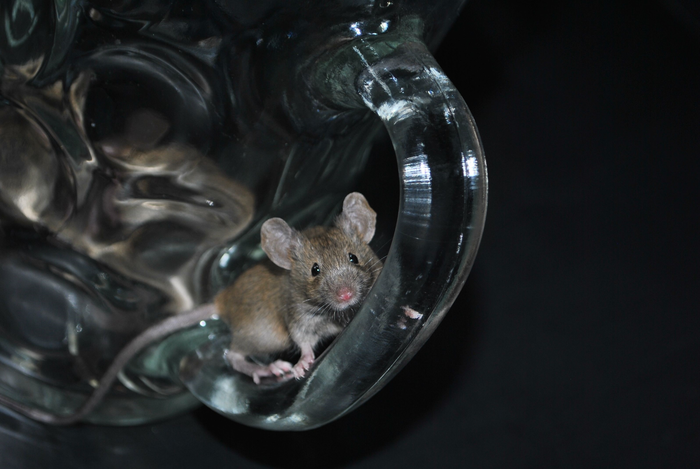Your gut microbiome, the community of bacteria living in your digestive system, is not just affected by your diet and environment, but can be influenced by your genes too, say scientists.

Credit: MPI-EB
Your gut microbiome, the community of bacteria living in your digestive system, is not just affected by your diet and environment, but can be influenced by your genes too, say scientists.
A team of researchers from the UK and Germany studying the microbiomes of house mice, found that the genetic make-up of the mouse host had a significant influence over the composition of the bacteria in the gut, with many species being heritable from one generation to the next. They also found evidence that these microbes and their mouse hosts evolve and diversify together.
They investigated the links between the gut microbiome and genes involved in human disease, for example Inflammatory Bowel Disease (IBD), and found these genes were indeed clustered in the areas of the genome associated with gut microbe composition.
Published in the journal eLife, the researchers profiled the abundance of gut bacteria found in hybrid mice strains, and looked at the relationships between the diversity of the microbes and the genetics of their mouse hosts. Intriguingly, they found that bacteria known to co-diversify across mammalian hosts were more likely to be inherited, which suggests that co-evolution with these particular taxa could be taking place.
The researchers, from the Section for Evolutionary Medicine at Kiel University and the Max Planck Institute for Evolutionary Biology (MPI-EB) in Plön led by Professor John Baines, together with Dr Leslie Turner from the University of Bath, studied hybrids of house mice, which are more genetically diverse than their lab-bred relatives.
The mice were fed the same diet, so that similarities or differences in the microbiome could be attributed to genetics rather than their environment.
Dr Leslie Turner, Lecturer from the Milner Centre for Evolution at the University of Bath, said: “Previous mapping studies of the gut microbiome in mice were largely based on inbred lab strains which had limited genetic diversity and lacked some of their native microbes.
“Hybrid mice derived from the wild on the other hand, are more genetically varied and retain similarity to their wild microbiome. Thus, our study had a greater chance to capture ongoing evolutionary processes in nature.”
Although genetic mapping of the gut microbiome in mice has been studied before, this is the first time it has been done in wild hybrid mice.
Dr Turner adds: “Studying lab mice vs wild mice is a bit like looking at dogs instead of wolves.
“Although some of the genes we discovered were previously highlighted as candidates contributing to gut disease in lab mice studies, we also identified several novel candidate genes that could be involved in gut-related conditions.
“Next, we want to look at these new candidate genes in more detail to find out their exact role in maintaining a relationship with microbes.”
Dr Shauni Doms, first author of the paper from the Max Planck Institute for Evolutionary Biology (Germany), said: “Our genetic mapping revealed more than 400 gene regions associated with changes in abundance in about 120 different bacterial taxa within the microbiome. We were able to narrow down this large number to about 80 high-confidence candidate genes, many of which are known to be involved in recognition and communication with bacteria.”
Dr Turner said: “Our study is the first to establish a relationship between heritability and the degree of diversification of bacteria with their hosts during the speciation process.
“We hope that a better understanding of the genetic architecture of host-microbe interactions in mice could help give us new perspectives on human gut-related conditions, and provide new insights into treatment and management of these disorders.”
Journal
eLife
DOI
10.7554/eLife.75419
Method of Research
Experimental study
Subject of Research
Animals
Article Title
Key features of the genetic architecture and evolution of host-microbe interactions revealed by high-resolution genetic mapping of the mucosa-associated gut microbiome in hybrid mice
Article Publication Date
19-Jul-2022
COI Statement
No competing interests declared.




